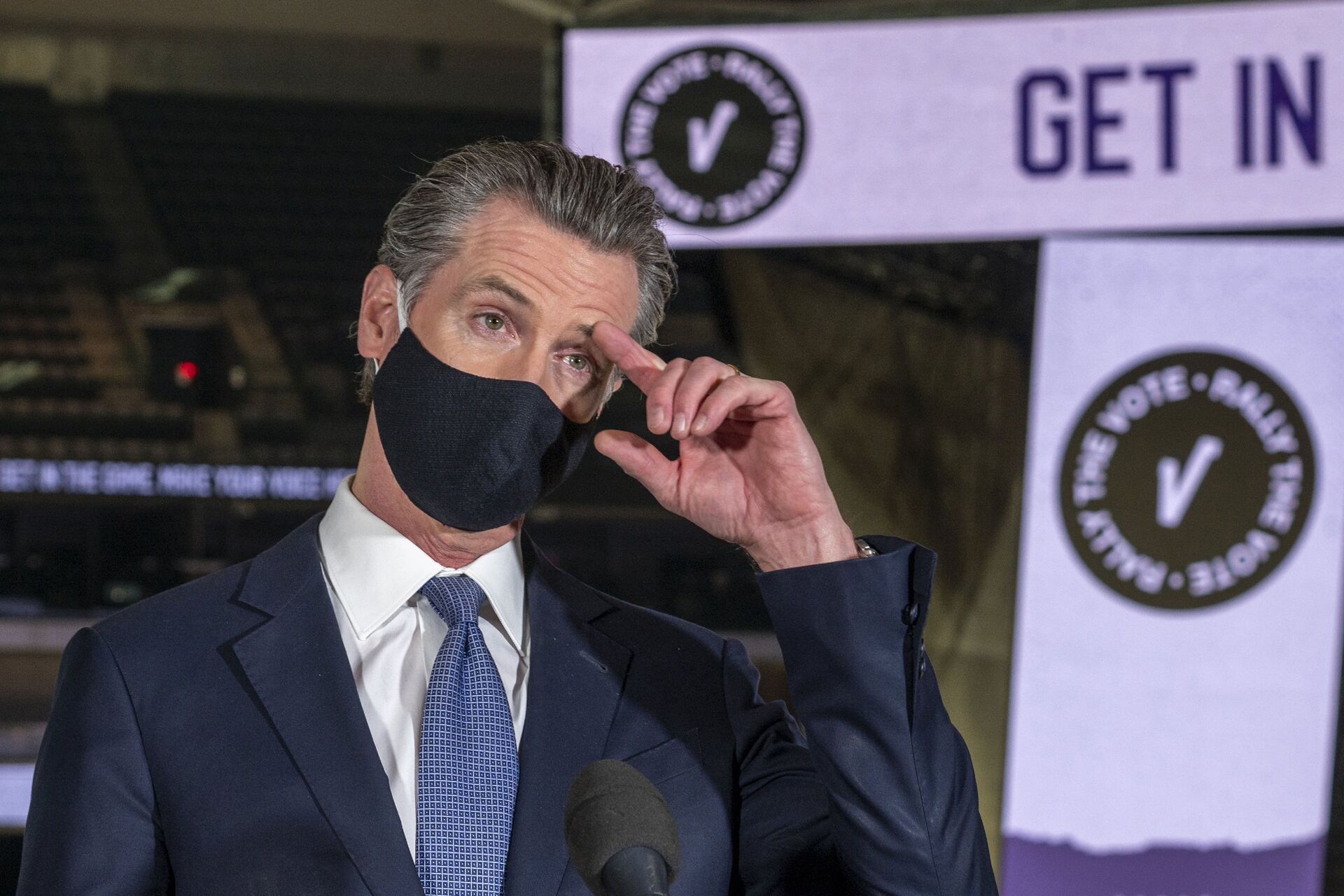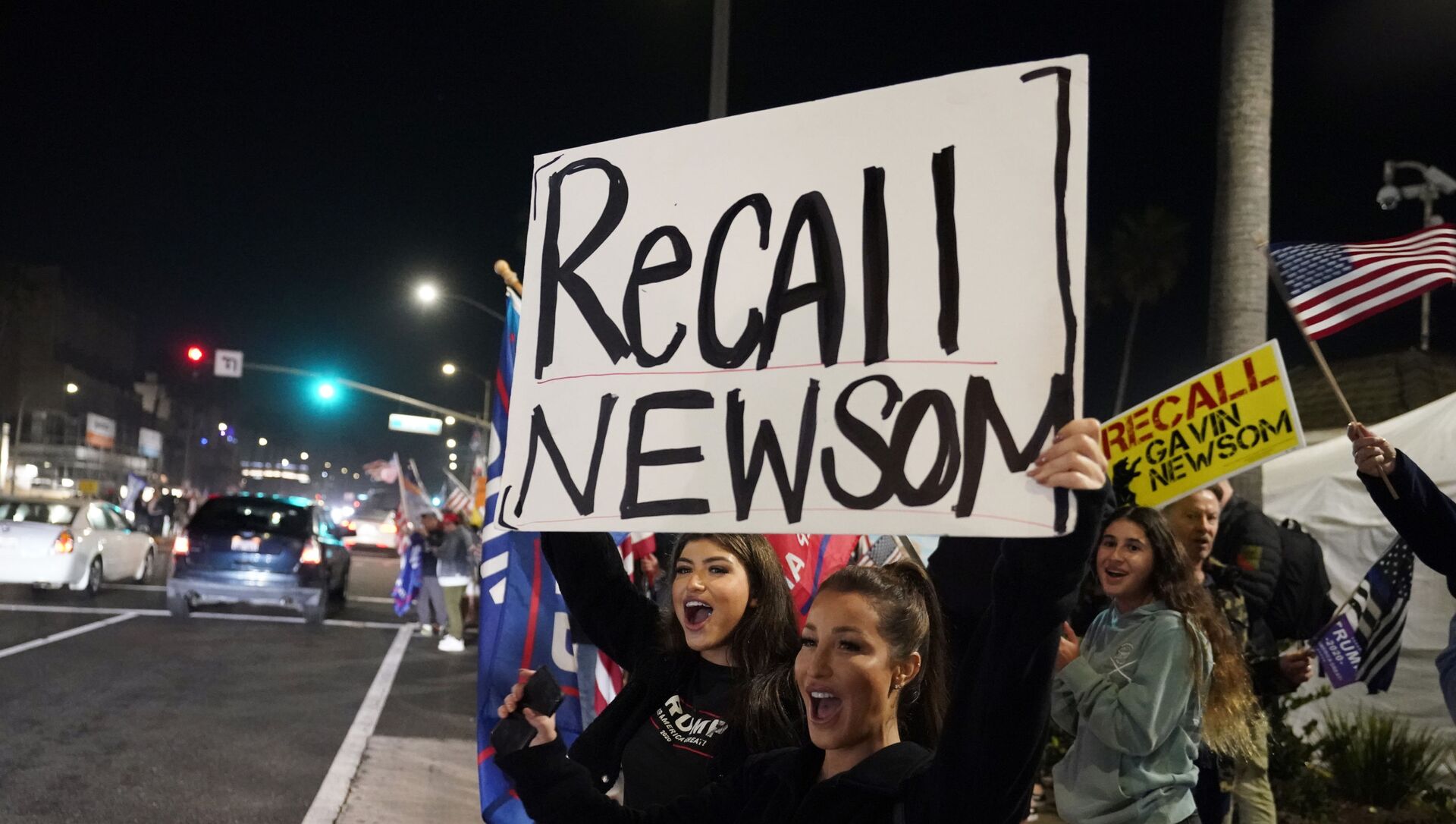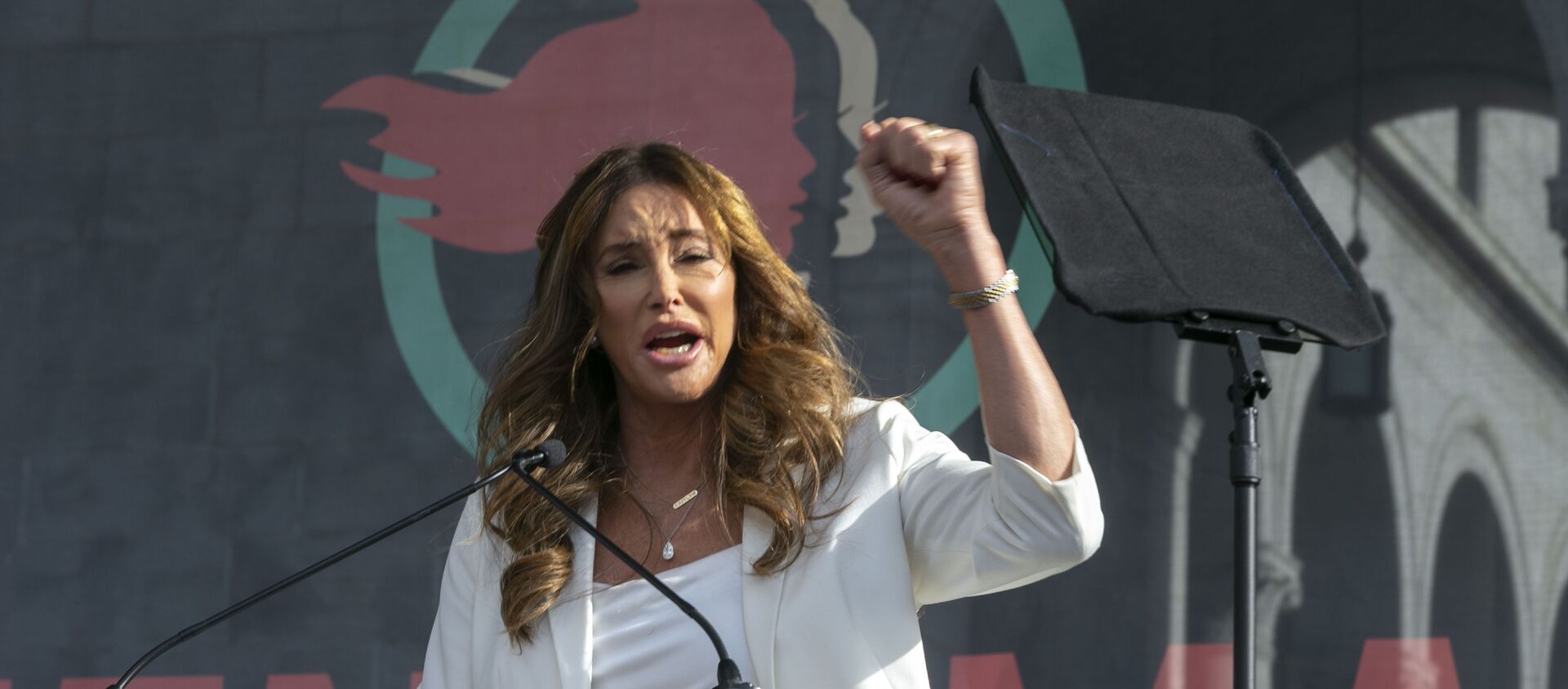Authors of the initiative to recall California Democrat governor Gavin Newsom have successfully submitted the required minimum of 1.5 million valid signatures to push the effort to the next stage, the local secretary of state's office announced. Now, the California lieutenant governor Eleni Kounalakis has to announce the date of the recall election, which must be scheduled within the next 60 to 80 days.
"The people of California have done what the politicians thought would be impossible. Our work is just beginning. Now the real campaign is about to commence", the author of the initiative, Orrin Heatlie said commenting on the news.
The petition to recall Newsom was officially launched in June 2020 and was largely linked to the governor's handling of the COVID-19 pandemic. Its authors collected and submitted over 2 million signatures by the extended 17 March deadline. The cause reportedly received a significant boost following a scandal in November 2020 caused by Newsom violating the COVID restrictions on personal meetings, which he had imposed himself, by meeting with lobbyists and several families at a private party.

Newsom has vowed to combat the recall efforts. His campaign claimed the petition was initiated by pro-Trump Republicans who purportedly seek to undo the governor's progress in the fight against the pandemic, protecting the environment and tightening gun control laws. No Democrat has so far stepped forward as a replacement candidate from the party for the recall election, but only two have endorsed Newsom - Elizabeth Warren and Bernie Sanders. The White House also articulated its opposition to Newsom's recall.
So What Happens Now?
California is one of few US states that allow its residents to recall the elected governor if they find his performance in the office unsatisfactory. Heatlie's initiative has already succeeded in the first major steps by gathering enough signatures. Now, unless a significant portion of signatories withdraws their support in the next 30 days, a recall election will be called. The last time this happened was in 2003, when Democrat Governor Gray Davis was ousted by Republican Arnold Schwarzenegger.
When Californians go to the polling stations (or vote via mail – which might be in high demand amid the pandemic), they will be asked two questions on the ballots: whether they want Newsom to go, and if yes, whom they would like to see as a replacement. So far, 10 people, including Republicans and unaffiliated politicians, have expressed their desire to replace the governor.
If the majority of people vote in favour of ousting Newsom, the replacement candidate who gets the most votes will replace him for the rest of his term, which ends in 2023. If not – Newsom keeps his post. In the 2018 election, he defeated his Republican opponent John H. Cox (who also plans to run in recall election) with 7.7 million votes versus 4.7 million. It is unclear, however, if the governor can gather that much support again after a year of lockdowns imposed as a response to the pandemic.




